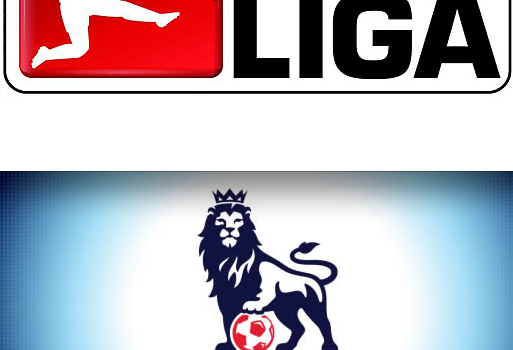On matchday two, we were treated to what would now be labelled an “old fashioned” Champions League match when Manchester City took on Borussia Dortmund.
In the days of the European Cup, before the competition’s rebranding in 1992, it truly was a “Champions League” in the sense that only the champions of respective leagues would qualify.
At the Etihad Stadium, the Champions of England up against the Champions of Germany was a glimpse to the past, and Dortmund, who last season claimed the Bundesliga title for the second year running, surprised the British TV audience with a fearless display rarely shown by away teams against City which shattered many of the odds provided by sports betting companies.
In the end, only Joe Hart’s string of excellent saves and a controversial penalty by Mario Balotelli prevented the win that the Germans truly deserved from the game.
The exhibition football Dortmund played at times made City look amateurish, but also exposed how little the viewing public know about leagues outside the Premier League bubble.
So, in this article, we ask: Is the Premier League really the best in the world?
Using the Bundesliga as a comparison, firstly we look at the quality of the players in the respective leagues. While the Bundesliga can boast the undoubted talents of players such as Franck Ribery, Arjen Robben, Mats Hummels, Rafael van der Vaart, and Klaas Jan Huntelaar, to name only a few, the Premier League’s abundance of world class footballers mean it edges this category.
Unpredictability is another issue for comparison. In the Premier League, though the likes of Wigan, Southampton, Reading and Norwich are more than capable of beating anyone on their day, these results are few and far between. Wigan’s great escape last season included victories over Arsenal, Liverpool, and Manchester United, but their record against the traditional “big” teams is abysmal, and they are far more likely to be on the wrong end of 5-0 defeats than beat one of the established powers of the English game.
However, in the Bundesliga, on any given day, anyone can beat anyone. In the Premier League the top four has been set in concrete for some years now, despite recent invasions from Tottenham and the emergence of City as a major force. There have been only five Premier League winners in the competition’s 20 year history.
Glance over to Germany, however, and there have been four different champions in the last ten years. The best illustration of the unpredictability of the Bundesliga is that 2008/09 champions Wolfsburg have never finished inside the top eight since their title, and in 2010/11 finished just four points above the drop zone. This season, after eight games, they find themselves bottom of the table. That’s one back for the Germans.
Next up is the quality of football on offer. Borussia Dortmund have claimed the last two league titles in Germany by playing exciting, fast paced attacking football, blowing away opponents who simply could not deal with Dortmund’s style.
Even the traditional powerhouse, Bayern Munich, had no answer, being defeated twice in the league, and humiliated 5-2 by the Champions in the DFB-Pokal Cup Final, the German equivalent of the FA Cup.
This result came just a week before the Champions League Final against Chelsea. In two of the last three seasons, the goals per game average in the Bundesliga has been higher than that of the Premier League, and in turn the highest in Europe in 2009/2010 and 2010/2011.
The Premier League, despite only being eight games old, is already starting to take its traditional shape. Chelsea and the Manchester clubs are at the top, while Wigan and QPR languish near the foot of the table.
In Germany, while Bayern have surged to the top, newly promoted Eintracht Frankfurt have won six of their first eight games to sit in second place, and Dortmund have already fallen 12 points behind Bayern thanks to an inconsistent start. Though fourth place in the Premier League is currently occupied by Everton, come May Eintracht Frankfurt are more likely to be in the same position than the blue half of Merseyside.
Moving off the field and into the stands, Germany wins. Where else in European football can you find a ticket to watch a top flight game for as little as £11? Consistently boasting the highest average attendance on the continent, the Bundesliga philosophy is that cheap prices puts bums on seats and feet on terraces.
In season 2011/12, the Premier League average attendance was 34,601, but that of the Bundesliga was 45,116. Though the terraces certainly contribute to this figure, they still must be filled. While the prices remain as low as they are for 90 minutes of excellent football, the number will only rise.
Previously, we have said that the Bundesliga is more unpredictable than the Premier League. However, the overall winner of this comparison is the league which provides the most excitement.
On the last day of the 2011/12 season, the pendulum swung between City and United as it had for the entire nine months of the campaign. Going into stoppage time, City were 2-1 down and United were Champions. Five minutes later, they’ve won 3-2 to lift the title. At the other end, the battle to avoid relegation provides coupon busters galore, as teams throw the form book out of the window and realise they better start winning soon.
Last season, on the Premier League’s final day, the title had still to be decided, European qualification was still up for grabs and any two of five teams could still be relegated.
Throughout the season, we are treated to edge of the seat, first class football, and though the Bundesliga is a worthy and excellent alternative, the Premier League reigns supreme. Just.
It’s the best league in the world.
Written by Andrew Watson
Follow him on Twitter @_AndrewWatson
Please like O-Posts on Facebook
You can follow O-Posts on Twitter @OPosts

